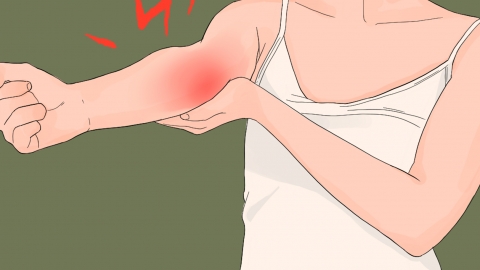What causes soreness and pain in the arms?
Generally, arm soreness may be caused by overuse, poor posture, periarthritis of the shoulder, cervical spondylosis, rheumatoid arthritis, and other conditions. If you experience any discomfort, please seek medical attention promptly and undergo symptomatic treatment under the guidance of a professional physician. Detailed explanations are as follows:

1. Overuse
When performing repetitive movements or high-intensity exercises with the arms, muscles may undergo anaerobic respiration, producing lactic acid. Accumulation of lactic acid in the muscles can alter the internal environment of muscle cells, stimulating nerve endings and causing soreness. It is recommended to avoid prolonged repetitive arm movements, warm up adequately before exercising, and stretch and relax afterward.
2. Poor Posture
Long-term maintenance of incorrect postures, such as hunching over a computer for extended periods or keeping the arms in unnatural positions of extension or flexion, can keep the muscles, ligaments, and other soft tissues of the arms in a tense state. Over time, this can lead to muscle fatigue and soreness. In daily life, maintain proper sitting and standing posture, ensure the arms are at a comfortable height relative to the keyboard and mouse when using a computer, and adjust your posture and move your arms periodically.
3. Periarthritis of the Shoulder
Periarthritis of the shoulder is often caused by degenerative changes in shoulder soft tissues or long-term overuse. Inflammation can irritate surrounding nerves and tissues, radiating pain to the arm and causing soreness. It may also be accompanied by shoulder pain and restricted movement. Under a doctor's guidance, medications such as ibuprofen suspension, diclofenac sodium gel, or Huoxue Zhitong capsules may be used for treatment.
4. Cervical Spondylosis
Cervical spondylosis results from chronic strain on the cervical spine and bone spurs that compress the spinal cord and nerve roots. When nerves supplying the arm are compressed, it can cause arm soreness, along with neck pain and stiffness. Patients may follow medical advice to use medications such as Jingkang capsules, eperisone hydrochloride tablets, or mecobalamin tablets to alleviate symptoms.
5. Rheumatoid Arthritis
Rheumatoid arthritis is associated with infection by group A beta-hemolytic streptococcus. Inflammation of the joint synovium can affect arm joints, leading to arm soreness along with symptoms such as joint redness, swelling, and warmth. Patients may follow a doctor's recommendation to use medications such as compound cyclophosphamide tablets, azathioprine tablets, or methotrexate tablets for treatment.
In daily life, it is important to strengthen arm muscle exercises to enhance muscle strength and joint stability; keep the arms warm to avoid cold exposure; avoid contact with harmful substances, such as certain chemicals, to reduce hidden disease risks.






